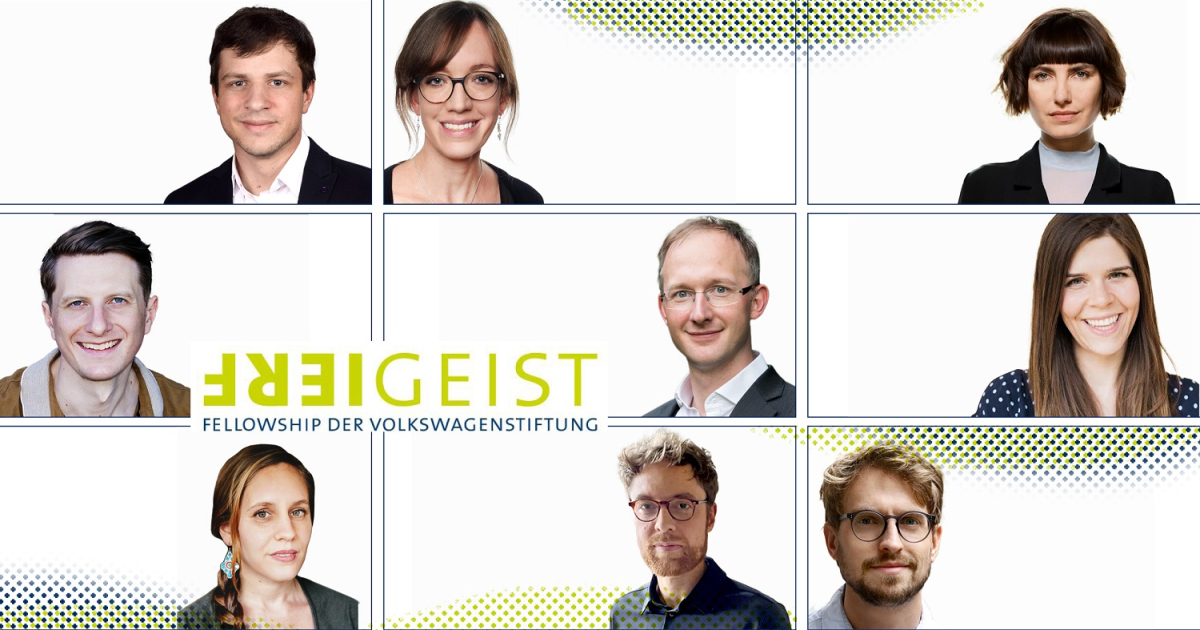Freigeist Fellowships: 12.2 million euros for nine exceptional research personalities
Nine early career scientists have been awarded prestigious Freigeist Fellowships for their daring projects. A Freigeist Fellowship offers creative minds maximum freedom and a clear time perspective for their research.
The Volkswagen Foundation's Freigeist Fellowships are aimed at unusual and courageous early career researchers from all disciplines in the first four years after their doctorate. Each year, the Foundation selects up to fifteen exceptional research personalities for funding of up to 2.2 million euros over a maximum period of eight years. Around 100 young researchers had submitted their project proposals by the deadline in October 2019.
The new Freigeist Fellows and their research projects
Dr. Elisabeth Becker: Invisible Architects: Jews, Muslims, and the Construction of Europe (Universität Heidelberg, approx. 1.4 million euros)
Dr. Hannes Beyer: Light-Assisted Programming of Synthetic Organoid Tissues (Universität Düsseldorf, approx. 1.8 million euros)
Dr. Jakob Huber: Democratic Hope (Freie Universität Berlin, approx. 800.000 euros)
Dr. Jakub Limanowski: Re-Learning Body Models in the Human Brain (Technische Universität Dresden, approx. 1.2 million euros)
Dr. Dr. Marco Meyer: Culpable Ignorance: Moral Knowledge in Organisations (Universität Hamburg, approx. 900.000 euros)
Dr. Francesca Mezzenzana: Learning "Nature": A Cross-Cultural Ethnography of Children's Relationships to the Non-Human World (Universität München, approx. 1.5 million euros)
Dr. Torben Ott: The Value of Time – A Neural Mechanism That Links Serotonin and Depression (Universität Tübingen, approx. 1.8 million euros)
Dr. Caroline Schuppli: The Evolutionary Roots of Innovativeness: Tracing the Phylogeny of Human Curiosity (Max-Planck-Institut für Verhaltensbiologie Radolfzell/Konstanz, approx. 800.000 euros)
Dr. Elena Vogman: Madness, Media, Milieus. Reconfiguring the Humanities in Postwar Europe (Bauhaus-Universität Weimar, approx. 1.2 million euros)

